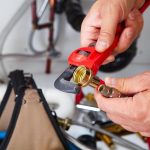In some industries, precision parts and components are not an option; they are a requirement. This is true in aerospace, aviation, automotive, medical equipment and devices as well as in the telecommunication and military and defense sectors.
However, many industries without these types of standards and requirements for parts and components still use precision metal fabricating services. Thanks to today’s technology and the ability to produce these parts quickly and with exceptional quality and tight tolerances, this is now a viable option for most OEMs to consider.
The advantages of choosing precision metal fabricating over standard processes are not hard to discern. Taking a closer look at how this translates into a benefit for the OEM can be helpful in determining if this is the best fabricating option for your parts and components.
Better Quality and Consistency in Parts
With precision metal fabrication, each part is virtually identical, or identical to within very tight tolerances. These companies also use rigorous quality control systems through production. Quality control measures result in better quality parts, regardless of the volume of production.
Easier Installation and Assembly
When parts are manufactured to tight tolerances, they are easier to install or use in assembly processes. This shortens the fabrication time for the next step in the process and also reduces waste.
Increase Brand Recognition
When parts and components fit correctly, can be precisely installed in systems, and are longer lasting, they are a benefit to the OEMs brand. The opposite are parts that fail or parts that have short life cycles due to poor fabrication or problems with the strength and durability of the part.
Even if precision metal fabricating is not necessary within an industry, choosing a metal fabrication shop that provides precision fabrication is well worth considering. Comparing prices, services, and production capacity provides the insight needed into determining if this is right for your production requirements.








